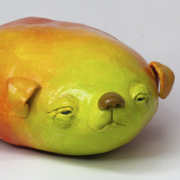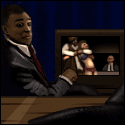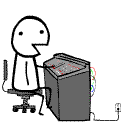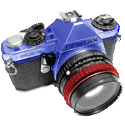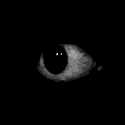|
mclifford82 posted:Some people enforce themselves. Pretty much. Plus the difference is pretty small in photo-dollars, so I feel like I might as well do it "right". Just no one tell me how much beer that is in real money.
|
|
|
|

|
| # ? May 13, 2024 23:19 |
|
Hey all. I shot 35mm film for several years, then had to stop after film became too expensive and I no longer had access to my school's darkroom. I'm thinking about picking up a used DSLR - but my budget is pretty tight. Think $500 or so. Would a Nikon D200 for $250 and and the 35mm f/1.8 for $160-200 or so be a bad choice, or should I get a newer, but less well-built body? I'm looking forward to re-reading Understanding Exposure, at least! And using this fancy Lightroom stuff. Lots to learn/re-learn. I.G.Y. fucked around with this message at 19:36 on Sep 15, 2013 |
|
|
|
Unless you mistreat your stuff I'd try for something newer. D90 and 35/1.8 is great.
|
|
|
|
Left of the Dial posted:Would a Nikon D200 for $250 and and the 35mm f/1.8 for $160-200 or so be a bad choice, or should I get a newer, but less well-built body? I love my D5100 with 35/1.8 and KEH has that lens for $144. http://www.keh.com/camera/Nikon-Digital-Fixed-Focal-Length-Lenses/1/sku-DN069991066850?r=FE
|
|
|
|
Left of the Dial posted:Hey all. I shot 35mm film for several years, then had to stop after film became too expensive and I no longer had access to my school's darkroom. I'm thinking about picking up a used DSLR - but my budget is pretty tight. Think $500 or so. Would a Nikon D200 for $250 and and the 35mm f/1.8 for $160-200 or so be a bad choice, or should I get a newer, but less well-built body? I'll leave it to the Nikon-shooters to comment on durability of various bodies.
|
|
|
|
The D90 is really nice, but if you're having trouble finding one, yes the D200 is also a good option (that's what I've been shooting on for the past five years or whatever).
|
|
|
|
SoundMonkey posted:The D90 is really nice, but if you're having trouble finding one, yes the D200 is also a good option (that's what I've been shooting on for the past five years or whatever). Honestly soundmonkey, im shocked your D200 hasnt suffered from bent CF pin at this point.
|
|
|
|
The camera shop I bought my camera from includes 4 free classes. I finally got around to taking the first one last night and holy poo poo I learned so much. This is gonna be a fun ride.
|
|
|
|
Can you tell us more about these classes? My encounters with descriptions of "Photography for Beginners" classes, never having taken one myself, are mostly about how it was a waste of time and the idiot sitting next to you kept insisting on P-means-Professional while their camera beeps out focus confirmation and other idiocy with every ham-fisted shot. Sounds like you got a good one.
|
|
|
|
I went to National Camera in the Twin Cities (http://natcam.com/). My class was taught by an actual photographer. We started out with Auto is bad and went from there. Learned about P (Program mode), and then moved onto Aperture Priority and Shutter priority. The class itself is probably taught by 10s or 100s of different instructors, and has been basically since DSLRs existed, so they've got a lot of good photo examples. And not just "here's a picture I took in Shutter priority." Here's a shot I took in Program mode, doesn't that suck? Here I took it again with shutter 1/30th, oh that sucks for a different reason. Now here it is at 1/4000, that one's actually good. I'd already known about the magic triangle from Understanding Exposure, but there was some artistic stuff he taught as well. Like how fast shutter speed freezes motion, slow shutter speed captures motion (with the classic example of a waterfall, but also a ferris wheel and a few other things). I learned about focus points and focus mode (and he shamed Nikon's AFA mode, which I promptly switched out of). He talked about focus and composition, specifically the thing where you center the subject, focus on the subject, freeze your focus, and then recompose your shot so maybe your subject is on the side of the frame. I already knew that but I think it helped a lot of people there. My mom had gotten a Groupon deal for a class a year or two ago somewhere else, and she said that this 2 hour class covered more than the 3 2-hour classes she took previously somewhere else. It was pretty intense, which is my preferred pace. I can't wait for sessions 2 & 3. E: Also talked about using the pop-up flash as a fill flash even when it's light out. I wasn't super happy about the color of the subjects when using the fill flash, but there certainly was a lot more detail in the pictures with fill flash vs the ones without. FISHMANPET fucked around with this message at 21:28 on Sep 17, 2013 |
|
|
|
FISHMANPET posted:E: Also talked about using the pop-up flash as a fill flash even when it's light out. I wasn't super happy about the color of the subjects when using the fill flash, but there certainly was a lot more detail in the pictures with fill flash vs the ones without. Adjusting the white balance should help with that.
|
|
|
FISHMANPET posted:I went to National Camera in the Twin Cities (http://natcam.com/). That honestly sounds awesome for a first set of lessons. Definitely would have helped me understand some things a bit more when I first started. I bet it's good for the store too as now the customer actually understands how to use their camera and knows how to get better photos and is less likely to return it. I'm interested to hear what they add in the next 2 lessons.
|
|
|
|
|
I have a newbie lens question. I bought my first DSLR, a body only Canon 60D in July, and picked up a used EF 70-300mm f4/5.6 off of the forums. This setup works for me most of the time, since I mostly have been shooting birds and wildlife with the occasional landscape shot thrown in. I'd like to get a wider and faster lens that will work indoors, and something lighter/wider for hiking through some of the narrow trail corridors in New Hampshire. I've seen the Canon 50 mm f/1.8 mentioned as a good budget lens, but I feel like this might not be wide enough on a crop body. Any recommendations?
|
|
|
|
EPICAC posted:I have a newbie lens question. I bought my first DSLR, a body only Canon 60D in July, and picked up a used EF 70-300mm f4/5.6 off of the forums. This setup works for me most of the time, since I mostly have been shooting birds and wildlife with the occasional landscape shot thrown in. I'd like to get a wider and faster lens that will work indoors, and something lighter/wider for hiking through some of the narrow trail corridors in New Hampshire. I've seen the Canon 50 mm f/1.8 mentioned as a good budget lens, but I feel like this might not be wide enough on a crop body. Any recommendations? I'd look at the shorty-40 (40/2.8), or if you need more speed, the Sigma 30/1.4. edit- also the Tamron 17-50/2.8 non-VC if you need really wide. There are a host of ultra-wide zooms as well that are all pretty good (those going down to between 8-12mm), but except for the Tokina they aren't very fast. BetterLekNextTime fucked around with this message at 17:11 on Sep 19, 2013 |
|
|
|
EPICAC posted:I have a newbie lens question. I bought my first DSLR, a body only Canon 60D in July, and picked up a used EF 70-300mm f4/5.6 off of the forums. This setup works for me most of the time, since I mostly have been shooting birds and wildlife with the occasional landscape shot thrown in. I'd like to get a wider and faster lens that will work indoors, and something lighter/wider for hiking through some of the narrow trail corridors in New Hampshire. I've seen the Canon 50 mm f/1.8 mentioned as a good budget lens, but I feel like this might not be wide enough on a crop body. Any recommendations? A Tamron 17-50 f2.8 will give you a wide to not so wide field of view than what you already have. It may be outside your budget? Ive used that lens as a general landscape to everything else walk around lens and is a good compliment to the 70-300 range you already has.
|
|
|
|
Get the Tamron 17-50 f2.8. You will not regret it.
|
|
|
|
Help me wrap my head around my in camera light meter. I think the meter is reading light energy hitting it. I am reading that color impacts readings, however, such as lots of white fooling the camera to think there is more light than there actually is. Is this because different colors reflect light energy differently and thus more light is hitting the meter - or is the light meter reading colors somehow?
|
|
|
|
Redleg posted:Help me wrap my head around my in camera light meter. The camera is trying to get an exposure (basically a number) that will expose the scene. If you have bright spot in you picture, like the sun, then it will throw off the exposure because the bright area in your picture is raising the exposure average. In this case, the camera is going to underexpose the rest of the image to get the exposure number down. The opposite is true for dark areas. When in comes to colors, different colors have different intensities. For example a dark blue will never be as intense as a bright green or a white. Its simply the fact that colors reflect light differently and everything will run back to my first point.
|
|
|
|
Redleg posted:Help me wrap my head around my in camera light meter. Understanding exposure sounds like something worth reading for you. In short though, camera meters are trying to expose the scene so that it is on average 18% grey. This is why blacks tend to overexpose and whites tend to underexpose. The different intensities of light is why heavily green scenes do... something. I forget what.
|
|
|
|
Mr. Despair posted:Understanding exposure sounds like something worth reading for you. In Understanding Exposure, the suggestion when metering off of green is to set your exposure compensation to -2/3 stops.
|
|
|
|
Mr. Despair posted:Understanding exposure sounds like something worth reading for you. Halfway through it 
|
|
|
|
I have a question about using histograms, based on some good feedback in the photo a day thread: http://forums.somethingawful.com/showthread.php?threadid=3450024&pagenumber=82#post419719663 I'm a physicist, and when dealing with spectra from a ADC usually you try to 'fill' the histogram range completely- like if you have 4096 channels there's no point in setting your analog amplifier up so that only the first 50 channels will contain your signal- you want to cover the full range because you can always rebin coarser later but can't rebin finer. You also of course don't want over or underflow as then you're losing information. With a digital camera I imagine the same to be true, right? You want to ensure that your exposure is such that you cover the maximum dynamic range without saturating or dropping off the low end, then offline you can cut/stretch the histogram in post. I ask because looking at this article: http://www.luminous-landscape.com/tutorials/understanding-series/understanding-histograms.shtml The last photo of the tree in snow seems to imply that the author is fine with everything being pushed right up to the high end. I can understand them doing that, but wouldn't it be better to move it up there in post rather than limiting the range you have to play with in the first place?
|
|
|
|
That shot of the tree has a pretty limited range, so you're not going to fill up the histogram. It's just a question of whether that spike is sitting in the middle or on the high side, and since he's shooting snow you want to be on the high side (otherwise everything will just be grey). Is it better to do it in camera versus in post? Well that's a matter of choice really, but so long as you aren't clipping the highs ore lows you're probably a-ok.
|
|
|
|
Thanks! It occurred to me that in camera you can only shift the histogram, you don't really have much choice over the 'amplification', right? As in, there's nothing you can do to stretch the histogram by way of altering f/ number, exposure or iso, so all things being equal if your histogram is only a quarter full, it doesn't matter if it's at the high, low or center of the range...
|
|
|
|
Changing the iso is the only thing that I would assume matters, since generally your dynamic range drops as you boost the iso.
|
|
|
|
StarkingBarfish posted:I have a question about using histograms, based on some good feedback in the photo a day thread: Thanks to digital quantization, there's way more information in bright areas than in dark areas. That's the idea behind exposing to the right. Whether you want to do the extra work in post to make the final result look the way you want is up to you.
|
|
|
|
MrBlandAverage posted:Thanks to digital quantization, there's way more information in bright areas than in dark areas. That's the idea behind exposing to the right. Thanks- I was reading exactly that article earlier. I also spent the afternoon dicking around and it looks like my camera underexposes by about 1ev already so I've compensated for that. Funnily enough the k-rock suggests doing the exact opposite to improve dynamic range: http://www.kenrockwell.com/tech/fixing-dynamic-range.htm
|
|
|
|
StarkingBarfish posted:Thanks- I was reading exactly that article earlier. I also spent the afternoon dicking around and it looks like my camera underexposes by about 1ev already so I've compensated for that. Funnily enough the k-rock suggests doing the exact opposite to improve dynamic range: ...and this is why we don't listen to K-Rock for anything other than Nikon lens specifications. I know a great number of people who keep their camera at +0.3 at all times, just because meters tend to be a little conservative and don't want to blow things out. Camera meters may be better now and this may be useless, but I still do.
|
|
|
|
To be fair, the Understanding Exposure guy also says to underexpose a notch if you have to.
|
|
|
|
Both are valid, depending on what you're trying to shoot, which end of the histogram is more important to you. In Rockwell's example of sunlight through clouds, overexposing it may clip the highlights.
|
|
|
|
SoundMonkey posted:I know a great number of people who keep their camera at +0.3 at all times, just because meters tend to be a little conservative and don't want to blow things out. Camera meters may be better now and this may be useless, but I still do.
|
|
|
|
My local camera shop had a dirt cheap 50mm Pentax-A f2 lens so I can mess with depth of field stuff and I picked up a Promaster FL1 flash on sale. The Flash probably isn't the best one, but I didn't see anything bad about it and it seems to be common. In any case I am glad I got a flash over an expensive lens as I think this will allow me to do things I haven't been able to so far. I want to a fundraiser fair type event and took a bunch of photos for a friend but the shade/sun combinations was killing me. I started getting the hang of it, but backlit stuff would have been better with a flash unit. Lots of the photos were useable though and no one was depending on the photos so it was just a great chance to get some practice. I got a great photo of a baby reacting wide eyed to a baby pig that fortunately turned out as it was just a great moment. Did some experiments with bounce flash and I am looking forward to getting some better pictures with my new stuff.  IMGP3528 by RedlegSA, on Flickr My cheap clearance camera is turning out not so cheap though 
|
|
|
|
SoundMonkey posted:...and this is why we don't listen to K-Rock for anything other than Nikon lens specifications. The D200/D80 were very prone to needing +.3/.7 comp cuz they flat out got metering wrong mostly. You could count on it being very wrong on sunny days and just kinda wrong on cloudy days. Sometimes you can trust your meter, and other times there's teh EV knob/button
|
|
|
|
Just shoot raw and you can fix anything in post. I'm mostly kidding but have seriously done this a few more times than I like to admit
|
|
|
|
|
FISHMANPET posted:I'd already known about the magic triangle from Understanding Exposure, but there was some artistic stuff he taught as well. Like how fast shutter speed freezes motion, slow shutter speed captures motion (with the classic example of a waterfall, but also a ferris wheel and a few other things). I'm not trying to poo poo your lessons cause it actually sounds really cool, but after covering the magic triangle, Understanding Exposure then goes into capturing motion and even uses the waterfall and ferris wheel as examples.
|
|
|
|
Spoiler alert, I didn't read understanding exposure beyond the magic triangle chapter.
|
|
|
|
I'm looking at getting a DSLR. It's going to be my first "professional" camera. I've read up a lot on DSLRs in the last day or so; how they work, what to look for, and so on, but where I'm falling short is narrowing down my list in a price to quality kind of way. I'm looking to spend around four to five hundred dollars, new or used. The main draw to it, over a micro-four-thirds for example, is having an optical viewfinder. The best bang for the buck seems to be Canon's T3i for about 450-500 (I've seen it for 550 new) with your basic lens, or 520 new without lens. I'm aware that I can get the 60D for 150-200 or so more but I don't like splurging to begin with. I'm also leaning toward a T2i, but getting the body only and picking up a better fixed-focus lens. If anyone's giving advice, what should I look for when buying used? Scratches on lenses, strange noises, and so on? A few guides I've read said it's better to avoid most kits and get the body only with a cheap prime lens, which sounds like a good idea since I'm not intending to zoom in on anything anytime soon. WorldWarWonderful fucked around with this message at 13:34 on Oct 5, 2013 |
|
|
|
WorldWarWonderful posted:I'm looking at getting a DSLR. It's going to be my first "professional" camera. I've read up a lot on DSLRs in the last day or so; how they work, what to look for, and so on, but where I'm falling short is narrowing down my list in a price to quality kind of way. I'm looking to spend around four to five hundred dollars, new or used. The main draw to it, over a micro-four-thirds for example, is having an optical viewfinder. I'm pretty happy with my T3i, though I wish in retrospect that I had splurged for a 60d (weather sealed, faster shutter speed if you need that, pentaprism, more cross type AF points, top screen with exposure settings shown on it...) Have you looked on KEH to check used prices there? They give a pretty good description of the quality you can expect when buying a used body. As far as lenses go, zooms are nice for adjusting your composition easily. I love my primes, by 'cheap prime' I am assuming they're talking about the nifty fifty and that'll be a little tight on a crop body, depending on what you like to shoot. (80 mm equivalent). It also sounds like it is full of bees, and feels like a kid's toy. Canon's 40mm 2.8 is a little more natural field of view, but also pricier.
|
|
|
|
Shellman posted:I'm pretty happy with my T3i, though I wish in retrospect that I had splurged for a 60d (weather sealed, faster shutter speed if you need that, pentaprism, more cross type AF points, top screen with exposure settings shown on it...) Have you looked on KEH to check used prices there? They give a pretty good description of the quality you can expect when buying a used body. As far as lenses go, zooms are nice for adjusting your composition easily. I love my primes, by 'cheap prime' I am assuming they're talking about the nifty fifty and that'll be a little tight on a crop body, depending on what you like to shoot. (80 mm equivalent). It also sounds like it is full of bees, and feels like a kid's toy. Canon's 40mm 2.8 is a little more natural field of view, but also pricier. The latter is what I'm looking at, mainly for the more natural field of view and because people seem to find the 50mm too narrow to work with. And they seem to hold their value better 
|
|
|
|

|
| # ? May 13, 2024 23:19 |
|
I got a new K30 for $450 on sale with a 18-55 lens and have been enjoying it. I got this mostly by accident, but retroactive review research is telling me I have a nice setup. The camera stores in my area all have a big box of old manual lenses to choose from too. I like mine and it may be an option for a new one if you don't have lenses you intend to use already.
|
|
|


